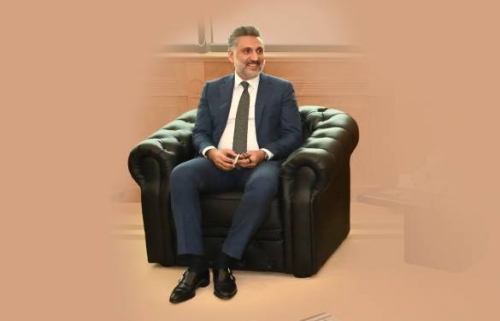Islamic Banking: A decade to reckon with
TDT | Manama
The Daily Tribune – www.newsofbahrain.com
Islamic banking has the potential to become a prominent global banking force within the next decade, says Mr. Yaser Alsharifi, the Chief Executive Officer of Bahrain Islamic Bank.
Responding to a question by The Daily Tribune whether Islamic banking could become a global banking force, Mr. Alsharifi said, “There is no limitation today for Islamic banking to be used anywhere in the world.
We’ve seen continued growth in the total assets globally, the projection going forward is for further growth, and the growth rates are higher than what they are on the conventional side.
So, yes.” In an exclusive interview, the CEO of the leading Islamic bank in Bahrain further said it is the principles of Islamic banking that give it this growth potential. Mr. Alsharifi said, “The principles and the basis of Islamic banking position is really well for continued growth.
You already see adoption of Islamic products all across the globe and not necessarily only in Islamic countries. You have these instruments in use in all the global markets, including London and New York.
You have them available in Singapore and Malaysia. It’s interesting because for the last few years, everyone has been talking about ESG principles. If you look at the basis of Islamic banking, these principles are in effect embedded in our religion and in its principles.”
Not against profit
The popular notion that Islamic banking is against making a profit is not true, the CEO said. “Islamic banking principles work on an equitable share of risk and reward and it is not against making a profit.
The structure of the relationship with the bank and the customer is designed in a way to accommodate what the need is. So, there are multiple ways of being able to finance and support the needs of the customer.
But all of these have embedded within them an element of profit. What Shariah principles don’t allow you to do is apply usury, which is excessive interest that harms or limits the ability of your borrower to pay you back, and this is something common to all religions.
Also, it prohibits excessive risk. So, you are not speculating on the basis of gambling or taking risk without knowing what you are going to get. But it is definitely not against making a profit,” he said while noting that the bank was launched in 1979 with the aim of engaging in ethical banking.
Asset-backed transactions
The CEO also termed as unfair the media characterization that assets of Islamic banks are weaker when compared to conventional banks.
“I think that’s not necessarily a fair reflection of where the business and the industry is at. The basis of Islamic banking requires full transactions to be asset-backed. At one point, the Islamic banks took on a more active role in the real estate sector, which historically the conventional banks shied away from.
They decided to supplement their income with some investment activities, but you see less of that in the retail or commercial Islamic banks. I think that we, as Bahrain Islamic Bank, have a robust risk-management framework.
We do a lot of work to make sure that we’re very close to the market, the customers, to what the outlook is, what the challenges are. We design and work towards achieving the right balance of risk-return as an institution.”
Focus on need, innovation
The bank is focused on the needs of the customers and innovates to stay ahead of its competitors, be it digital-only banks or Islamic banks from other countries, the CEO said.
“Competition is good and it forces you to be better. We’re an open market and we welcome new entrants. I look at it as an opportunity and look at them as potential collaborators or partners. If you have the customer at the centre of what you’re trying to do, this approach will be to the benefit of the customers,” he added.
Related Posts

